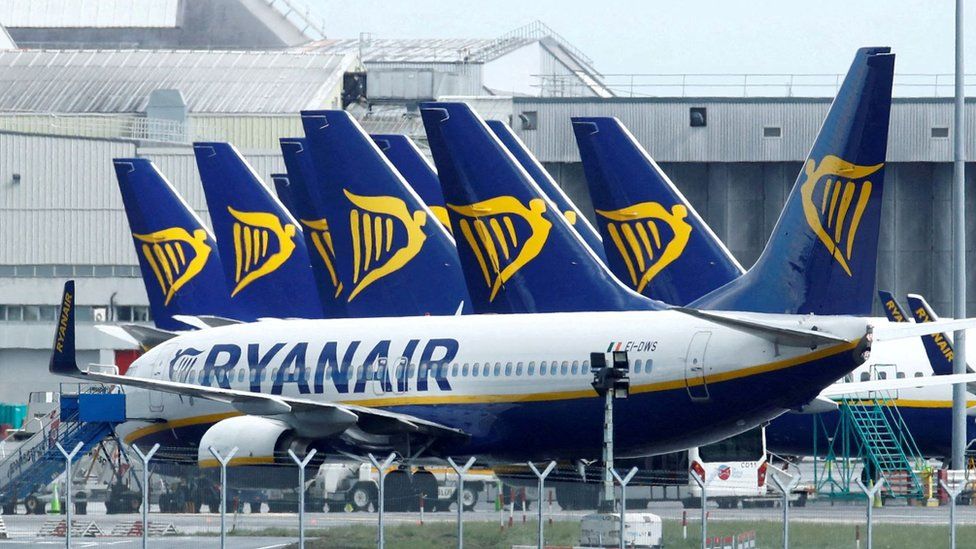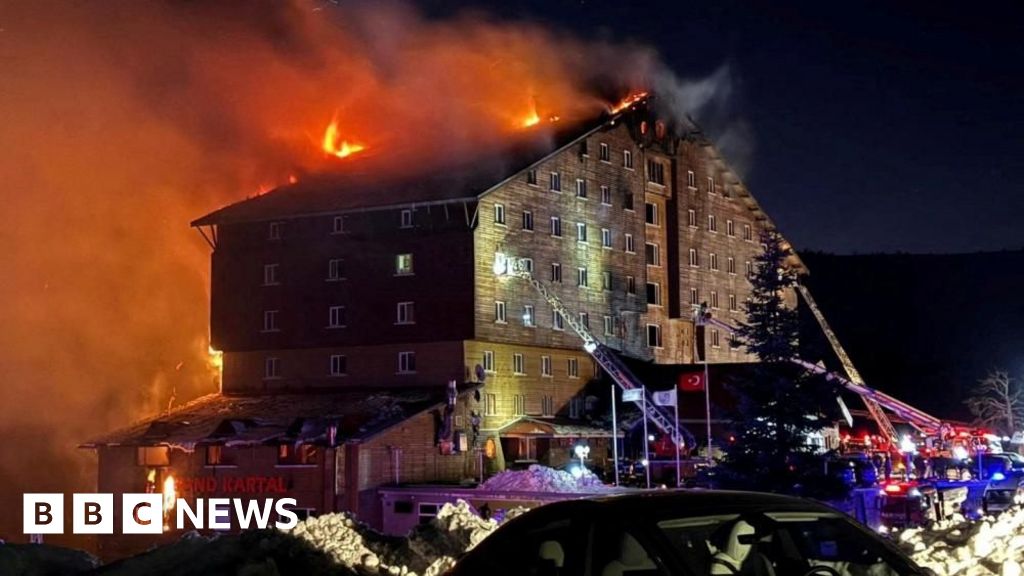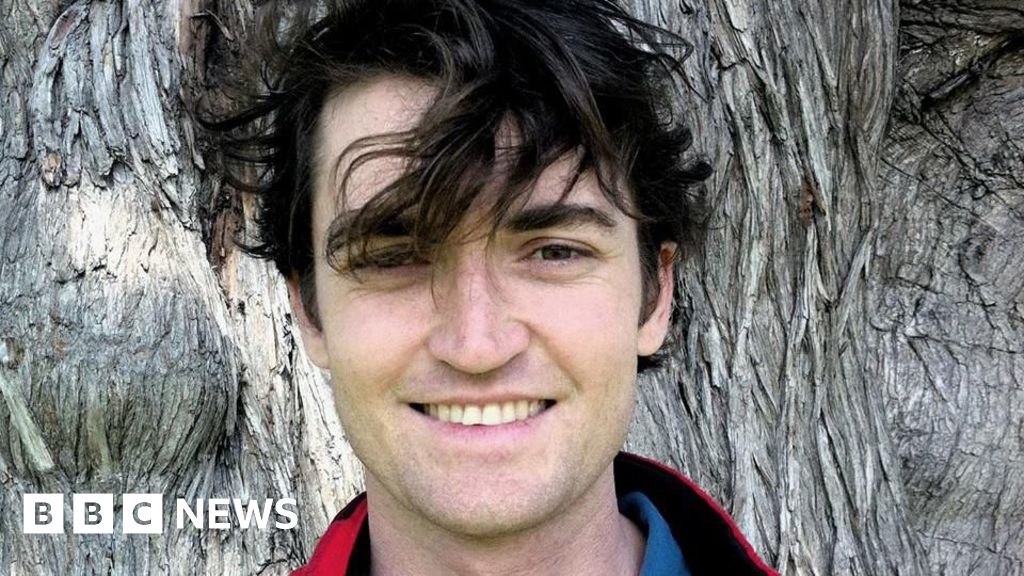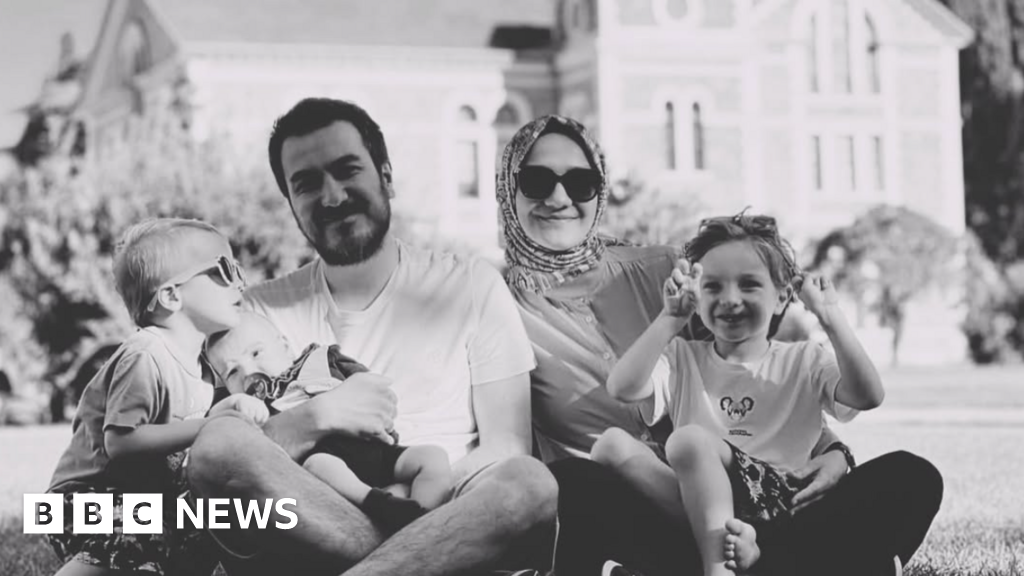ARTICLE AD BOX
 Image source, Reuters
Image source, Reuters
Ryanair has dropped a controversial test in the Afrikaans language aimed at identifying passengers travelling on fake South African passports.
Boss Michael O'Leary said imposing the test "doesn't make any sense".
The policy caused outrage in South Africa, where many black people associate Afrikaans with the days of white-minority rule.
South Africa has 11 official languages and Ryanair never explained why it chose Afrikaans.
The budget airline runs flights across Europe.
The quiz contained questions such as what is South Africa's international dialling code, what is its capital city and who is the current president of the country.
Anyone who failed was refused travel and refunded the cost of their ticket. Ryanair originally defended the test saying it received a fine for every passenger found to have travelled on a fake passport.
In a statement sent to the BBC last week, Ryanair said it had to carry out the extra test because of "substantially increased cases of fraudulent South African passports being used to enter the UK".
But the imposition of the quiz was widely condemned.
More than a week after the controversy blew up, Mr O'Leary has said the airline has changed its policy.
"Our team issued a test in Afrikaans of 12 simple questions," he told journalists.
"They have no difficulty completing that. But we didn't think it was appropriate either. So we have ended the Afrikaans test, because it doesn't make any sense."
Last week, South African citizen Dinesh Joseph told the BBC how he was "seething" with anger when asked to take the test before flying to the UK from the Canary Islands.
"It was the language of apartheid," Mr Joseph said, saying it was a trigger for him.
"Being a person of colour, especially from South Africa, you've experienced a lot... of racism," he said.
Dinesh Joseph: 'Why I was so upset by Ryanair Afrikaans test'
The imposition of Afrikaans in schools was the main reason behind the 1976 Soweto uprising against the apartheid regime, in which at least 170 people were killed, mostly schoolchildren.
South Africa has 11 official languages: Zulu, isiXhosa, Afrikaans, Sepedi, Setswana, English, Sesotho, Xitsonga, Siswati, Tshivenda and Ndebele.
Why Afrikaans is so controversial:
- During apartheid, or white-minority rule, Afrikaans was made mandatory and an official language of education, alongside English, prompting nationwide protests by black South Africans
- It is no longer obligatory but is an option in schools
- It is the mother tongue of only 13% of South Africans, mainly mixed-race people, known as coloureds, and white South Africans - the descendants of Dutch, German and French settlers who arrived in the 17th Century
- More will be able to understand it but many cannot, and speak one of the 11 other official languages
- English is the language most commonly used officially and in business, according to South Africa's 2011 census.
You may also be interested in:
Soweto uprising: The students who changed South Africa

 2 years ago
64
2 years ago
64








 English (US) ·
English (US) ·